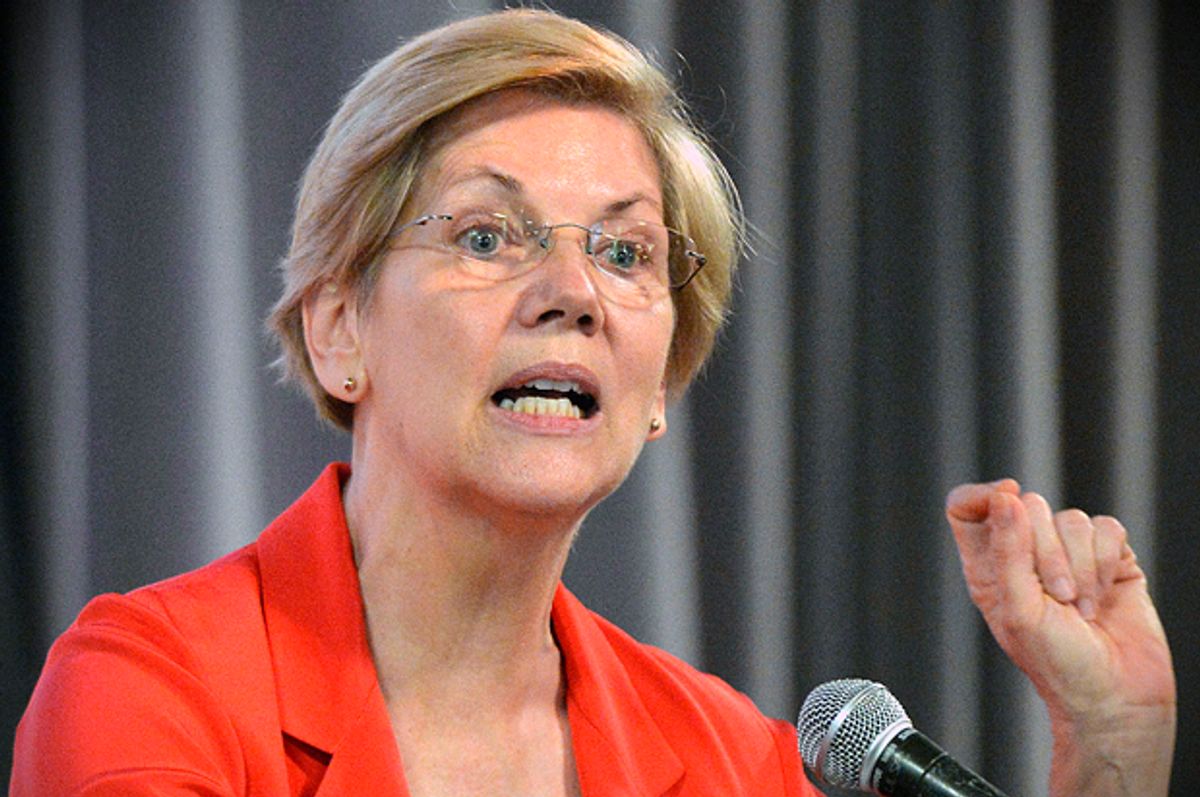I’m a huge admirer of Sen. Elizabeth Warren. She’s the best new leader to emerge in the Democratic Party in decades. If she wants to run for president, I hope she does so.
But I don’t think she wants to run for president. She’s told us that in many different ways and places. I was particularly struck by her no-nonsense answer when asked by colleague Sheila Bair, but she’s basically given no-nonsense negative answers since the effort to “draft” her began.
So I’m coming to find the “draft Warren” juggernaut a little bit perplexing. I know the participants have wonderful motives and genuinely would welcome a Warren candidacy. But with every email I receive, I get a tiny bit more cynical. It doesn’t feel so much like groups are using their organizational strength to help Warren, but enlisting Warren to help build their organizational strength.
Don’t get me wrong, I think MoveOn and Democracy for America have done important infrastructure and leadership building on the left of the Democratic Party. But I’m not really sure that the "Draft Warren "effort does much more for progressives than encourage a cult of personality – and risk member disillusionment when Warren all but certainly declines to make the race.
I confess my misgivings about all this crystallized Sunday night, when I heard the news that the Working Families Party had joined the “Draft Warren” movement. I admire WFP; I think they’re doing exactly what progressives should be doing: Working within the Democratic Party and pulling it to the left, not standing outside the party and declaring it no better than the GOP.
But it was hard not to contrast their “Draft Warren” move, which looks symbolic at best, and contains an implicit challenge to Hillary Clinton, with their cave-in to Gov. Andrew Cuomo last year -- which was not merely symbolic but had real ramifications. At that time, they had a terrific progressive female candidate, Zephyr Teachout, ready to challenge Cuomo – and they backed Cuomo. So to recap: With a willing progressive woman challenging a politically centrist Democratic man – the progressive didn't get the WFP endorsement. But now, with a centrist but more liberal (than Cuomo) Democratic woman, Hillary Clinton, (probably) running for president, WFP is courting a challenger -- who (probably) isn't running anyway.
Predictably, other “Draft Warren” groups hailed the WFP news. Move On emailed to invite me to share a graphic on Twitter and Facebook that thanks WFP for joining the movement. “It's important that we show them this morning that the number of people who think they absolutely made the right decision far outweighs the nay-sayers” – that would be me, I guess.
In addition to advancing the assumption that the Clinton campaign won’t be progressive enough, before she’s even declared her candidacy, the hype about Warren serves to obscure the depth and breadth of the new populist movement afoot among Democrats in Congress. Why not draft Sen. Bernie Sanders, who says he’ll run if he believes he has organizational backing? Or other progressive senators like Sherrod Brown or Al Franken or Kirsten Gillibrand? Elizabeth Warren is a star in her own right; she doesn’t particularly need this kind of help.
It’s also past time to observe that in addition to saying she isn’t running, Warren hasn’t done anything to build an organization in any of the early primary or caucus states. Now, presumably “Draft Warren” could help with that in the unlikely event she changes her mind – but Warren’s failure to make any of the moves associated with building a campaign is just one more reason to believe she won’t run.
I’d love to see a campaign that popularizes Warren’s “eight point plan to build the middle class” and encourages all Democratic candidates – including Clinton -- to back it. Building a movement around a single political leader rather than around issues seems like a recipe for disappointment, especially when that leader has made it so clear she’s not looking to run for president.

Shares